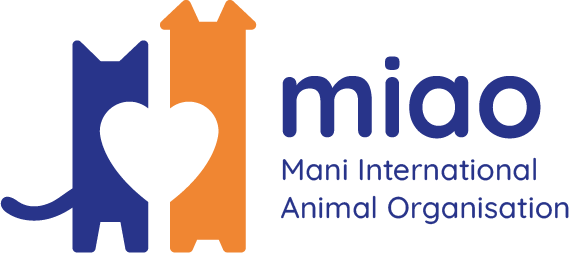Our dogs come from a crisis area fwith endemic leishmaniasis.
The blood test, which is done by us shortly before adoption, can be negative because the disease has not broken out, but can nevertheless be dormant in the animal already. After all, the incubation period can be several years.
So it is possible that the disease never breaks out, or that an outbreak is triggered years after the placement, often under stress and fear of loss; it is always promoted by inadequate or unsuitable nutrition that weakens the immune system.
The titre test, which we always carry out before handing over a dog, therefore ONLY states that the disease has not broken out or is detectable at the time of the test.
Since we also have a normal blood count done on your dog at the same time as the test for leishmaniasis, we can also say at that time that the dog has no organic damage that would indicate symptoms of this and other pathogens.
We suggest strongly, that you never lose sight of the possibility of an outbreak of leishmaniasis; if there is the slightest sign of weakness or loss of appetite, please alert your vet that your dog is from a leishmaniasis crisis area.
Symptoms should always be taken seriously, even if the dog actually seems to be “fit”, because treatment is more promising the earlier it starts.
Crisis areas are all warm areas where the sand fly – the only carrier of this disease – can be found, now-a-days also in the increasingly warmer areas of Germany.
Have your dog routinely tested once a year, also puppies again at age 1 year, so that you and your vet always have a reassuring update.
In your interest, but also in the interest of the dog, it is very important for us to say that, contrary to many horror scenarios found on the internet, leishmaniasis does NOT automatically mean a death sentence, nor a reduction in life expectancy or even joy of life, because successful and early therapy makes the matter a trifle, one of many diseases that can be controlled. Many of our dogs, some of them at biblical age, which we look after here, bear witness to this. Since we also regularly protect these dogs against the sand fly, the carrier, we significantly minimise the risk of them passing on the disease. The sand fly, by the way, is a nocturnal insect that settles on resting bodies.
We and our vets have a lot of experience with this here in the crisis area of Greece and are happy to offer our help. Please feel free to ALWAYS contact us whenever questions arise.
Basically, for the health of your dog, we recommend regular de-worming, regular measures against parasites (against all parasites and also the sand fly there are collars, spot-on medication or also vaccinations), a healthy and species-appropriate diet and simply also a life with your dog, which gives it stability, security and great trust in you.
